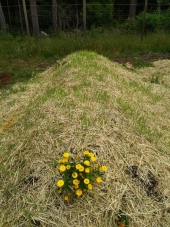
 4
4





Sourdough Without Fail Natural Small Batch Cheesemaking A Year in an Off-Grid Kitchen Backyard Dairy Goats My website @NourishingPermaculture @KateDownham






 3
3




Living a life that requires no vacation.

 4
4




List of Bryant RedHawk's Epic Soil Series Threads We love visitors, that's why we live in a secluded cabin deep in the woods. "Buzzard's Roost (Asnikiye Heca) Farm." Promoting permaculture to save our planet.
 1
1




Check out Redhawk's soil series: https://permies.com/wiki/redhawk-soil
 1
1




 1
1




I keep a blog over here: bramblewoodhill.com












 4
4




List of Bryant RedHawk's Epic Soil Series Threads We love visitors, that's why we live in a secluded cabin deep in the woods. "Buzzard's Roost (Asnikiye Heca) Farm." Promoting permaculture to save our planet.
 1
1




 3
3
















 1
1




List of Bryant RedHawk's Epic Soil Series Threads We love visitors, that's why we live in a secluded cabin deep in the woods. "Buzzard's Roost (Asnikiye Heca) Farm." Promoting permaculture to save our planet.

| I agree. Here's the link: http://stoves2.com |




